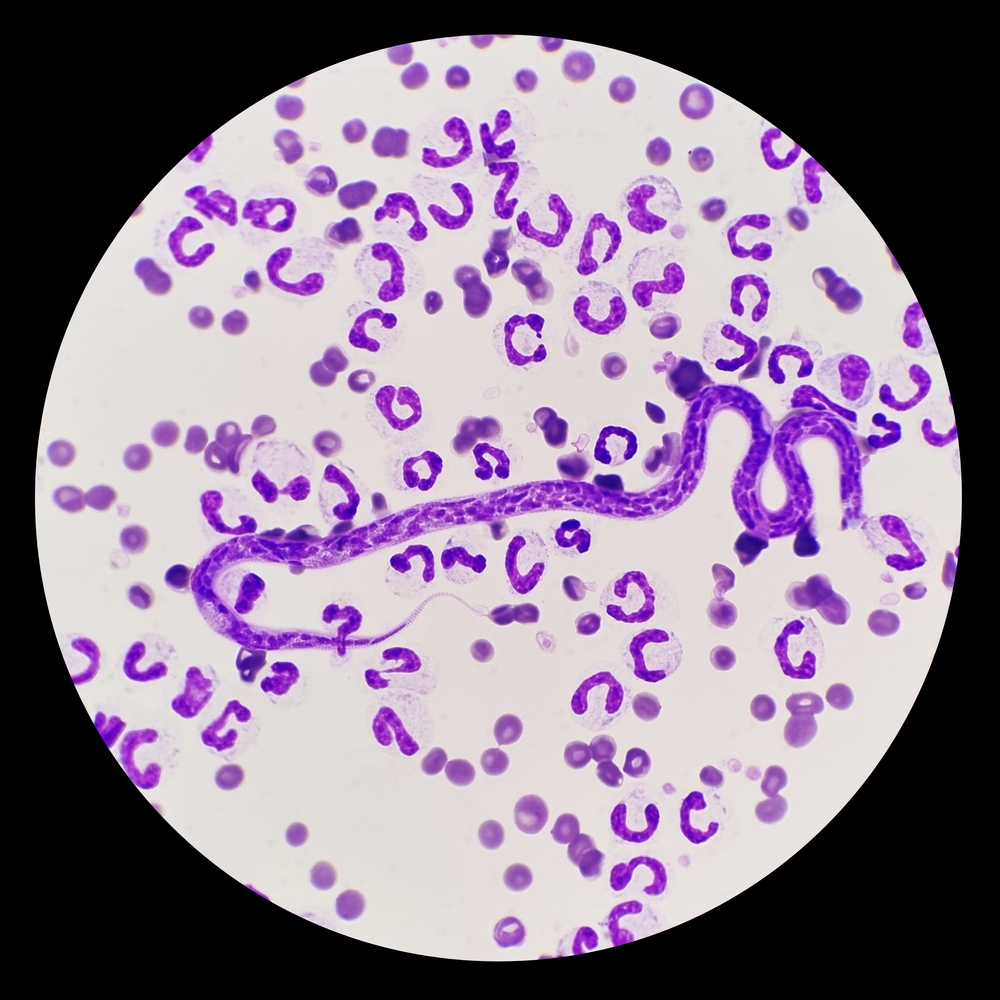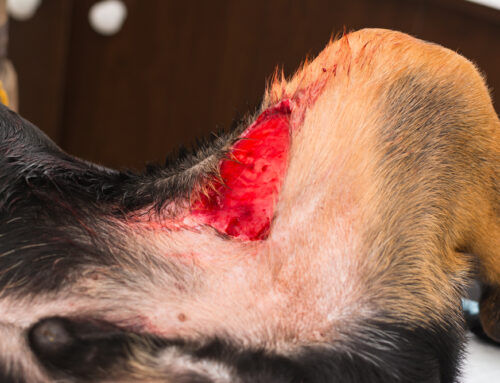April is Heartworm Prevention Month, but heartworm prevention is a year-round job for pet owners. Your pets count on you to protect them, and you need to know about heartworm disease to help keep them safe from this deadly condition. Our Alpine Animal Hospital team is here to answer six common questions about heartworm disease, and how to ensure your pet is protected.
#1: Is heartworm disease potentially fatal for pets?
Adult heartworms look like foot-long spaghetti pieces, and are transmitted primarily through an infected mosquito’s bite. Immature heartworms, or microfilariae, enter your pet’s bloodstream through the bite wound, and mature into adult heartworms in approximately six months. The heartworms continue to grow and reproduce, infecting areas in and around your pet’s heart, lungs, and pulmonary blood vessels. Heartworms can live inside your pet for five to seven years, leading to a wide range of health problems. Unfortunately, heartworm infection, left untreated, can be fatal for your pet. Note that infected pets cannot pass heartworms to other pets, because these parasites need a mosquito to develop to the “infective stage.”
#2: Does heartworm disease only affect dogs?
While dogs are most at risk, any mammal can develop a heartworm infection. Cats are susceptible to heartworms, although they tend to be more resistant than dogs, and ferrets are also vulnerable. Because of their size, only a few worms can cause an infection and be detrimental to their health.
No safe drug therapy treatment options exist for heartworm treatment in cats, so prevention is the only way to keep them safe.
#3: Do heartworm signs look different for cats and dogs?
Heartworm disease appears differently in cats than in dogs. Disease severity in dogs depends on the number of worms living inside their body—in some cases, several hundred—how long the dog has been infected, and how their body responds to the infection. Heartworm disease signs may not be obvious in dogs who have been recently infected, or are not active. Dogs who have been infected for a long time, or are extremely active, often will show obvious disease signs, including:
- Mild, persistent cough
- Reluctance to exercise
- Fatigue after exercise
- Decreased appetite and weight loss
As the disease progresses, dogs may develop heart failure and ascites (i.e., abdominal fluid buildup).
Detecting heartworm infections is more difficult in cats than dogs. Most worms in cats do not survive to the adult stage, and not all cats with heartworm disease show symptoms. If cats do show heartworm signs, they will include:
- Vomiting
- Decreased activity
- Decreased appetite and weight loss
- Respiratory problems (e.g., trouble breathing, increased respiratory rate, and cough)
#4: How can an owner improve their pet’s prognosis?
Because heartworm disease is progressive, the earlier the detection and treatment, the better your pet’s prognosis. The American Heartworm Society recommends testing pets every 12 months for heartworm, and giving year-round heartworm prevention. Checking for heartworm disease requires only a blood sample, but the test has some limitations, in that only adult female heartworms are detected. Immature heartworms and adult males may be present, so the test can produce a false-negative result, especially in cats who harbor only a few worms. If necessary, your veterinarian will send blood to an outside laboratory for more specific testing to confirm a diagnosis. Unfortunately, no heartworm treatment is available for cats, so prevention is key.
#5: Is treatment available for heartworm-positive pets?
Heartworm disease treatment can be challenging for people and pets, and the earlier your pet is treated, the more likely a positive outcome. Treatment involves deep intramuscular injections of an arsenical compound. Other medications may be necessary, to help control the body’s inflammatory reaction as the worms die and break down in the lungs. Exercise restriction is vital, because a pet who is too active can suffer potentially fatal side effects caused by the dying worms lodged in the lungs. In some cases, dogs may require surgical removal of their heavy worm burden.
#6: Can pets be protected from heartworm disease?

A variety of safe, effective heartworm preventives are available in topical, oral, and injectable forms. While heartworm transmission risk decreases in the winter months, the risk is never zero, and heartworm preventives should be given year-round. One missed dose of preventive can leave your pet vulnerable to infection.
You can also reduce your pet’s heartworm disease risk by taking the following precautions:
- Removing standing water sources that attract mosquitoes (e.g., flower pots, fountains, kiddie pools.)
- Keeping your window screens free from tears, to ensure mosquitoes can’t get inside your home.
- Avoiding moist, shady spots that mosquitoes prefer when walking your pet
Heartworm is a serious disease, and our team at Alpine Animal Hospital is serious about keeping your pet happy, healthy, and worm-free. Contact us to schedule a wellness exam for your pet, when we will test for heartworms, and formulate a year-round heartworm prevention plan.







Leave A Comment